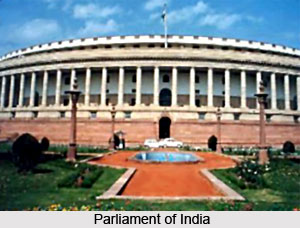 Functions of the Council of Ministers are multifarious. Its major role is to aid and assist the President of the country in the exercise of his functions. Broadly speaking the functions of the Council of Ministers can be divided into the following categories as discussed below.
Functions of the Council of Ministers are multifarious. Its major role is to aid and assist the President of the country in the exercise of his functions. Broadly speaking the functions of the Council of Ministers can be divided into the following categories as discussed below.
Executive Functions of Council of Ministers
The Indian governmental system being parliamentary, the powers vested by the Constitution of India in the Indian President are actually exercised by the Council of Ministers. Article 74 of the Constitution lays down in unmistakable terms that the Indian President shall, in the exercise of his functions, act in accordance with the advice tendered by the Council of Ministers. The President appoints Governors, Ambassadors and other diplomatic representatives, the Chief Justice and other Judges of the Supreme Court, the Chief Justices and other Judges of the High Courts, Attorney-General and Auditor-General of India and various commissions such as the Finance Commission of India and the Election Commission of India. All these appointments are made by the Cabinet which is a body of the Council of Ministers. The President has the power to remove the Attorney-General of India, the Governors of the States etc. But in removing these officers he has to act on the advice of the Council of Ministers.
Council of Ministers in Military and Foreign Affairs
Declaration of war and conclusion of peace are executive functions. They are exercised by the Council of Ministers in the name of the President. The executive power relating to foreign affairs is exercised by the Council of Ministers. All treaties and international agreements are negotiated and concluded by the Council of Ministers in the name of the President.
Legislative Powers of Council of Ministers
The President summons and prorogues the Indian Parliament and dissolves the Lok Sabha (House of the People.) He addresses Parliament and sends messages to it. The addresses and messages are prepared by the Cabinet. It is the Cabinet that prepares the annual budget and supplementary budgets, if any. They are laid before Parliament by the Finance Minister on behalf of the President. The President promulgates ordinances when Parliament is not in session. He does it on the advice of the Cabinet. Joint sittings of Parliament are summoned by the President on the advice of the Council of Ministers. Twelve members to the Rajya Sabha (Council of States) and two Anglo-Indians to the House of the People are nominated by the President on the advice of the Council of Ministers. Most legislative measures (Bills) are prepared and submitted to Parliament by the Council of Ministers.
Judicial Powers of Council of Ministers
The President exercises his power of pardon, reprieve etc. on the advice of the Council of Ministers.
Emergency Powers
The President exercises vast emergency powers. There are three kinds of emergency: emergency arising out of war, aggression or armed rebellion, emergency arising out of failure of Constitutional machinery in a State and financial emergency. All these powers are exercised by the Cabinet in the name of the President.
Thus discussed are the powers and functions of the Council of Ministers.




















